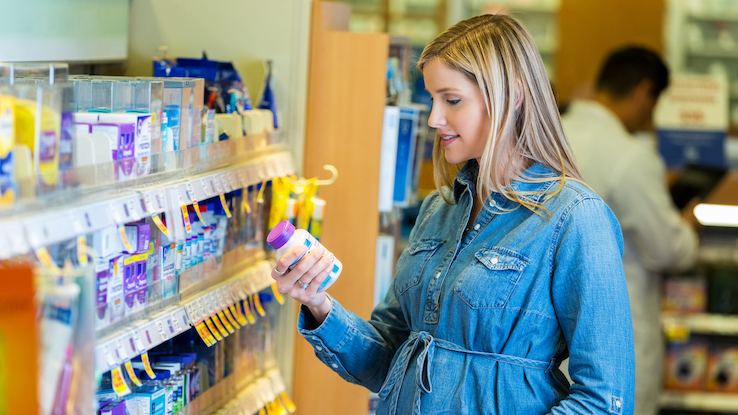How Long Should You Continue Folic Acid After Pregnancy With Trileptal

Folic acid (also called vitamin B9) is a vitamin that your body needs to make new cells. Everyone needs some folic acid — but pregnant people need even more. It's important to take folic acid supplements before and during pregnancy to prevent serious birth defects. Learn all about folic acid and how it affects pregnancy and fertility.
Folic acid is an important vitamin for pregnancy because it prevents birth defects. Specifically, you need enough folic acid for the baby's brain and spinal cord to develop properly. Without enough folic acid, your baby can be at risk for neural tube defects, like spina bifida. These types of birth defects can lead to serious disabilities and even death.
The good news is that a daily folic acid supplement can help prevent these serious birth defects. But the key time for brain and spine development is at the very beginning of pregnancy. That's why you need to start taking folic acid supplements at least one month before you start trying to get pregnant and through at least the first three months of pregnancy.
Does Folic Acid Help You Get Pregnant?
While we know that folic acid prevents birth defects, the role of folic acid in fertility isn't clear yet.
Some early-stage research studies suggest that taking folic acid may help you get pregnant — and more research is still looking at this question. But there's not enough research yet to know for sure, and experts don't currently recommend folic acid to help with fertility.
But remember, folic acid prevents birth defects — so if you're trying to get pregnant, it's important to start taking a daily folic acid supplement right away.
How Much Folic Acid Do I Need to Take?
The Centers for Disease Control and Prevention (CDC) recommends that everyone who can get pregnant take 400 mcg (micrograms) of folic acid every day. It's especially important to start taking folic acid if you're planning or trying to get pregnant.
You can get folic acid as part of a prenatal vitamin or in some types of multivitamins. Just make sure to check the label — look for 400 mcg of folate, folic acid or vitamin B9.
There's no evidence that higher amounts of folic acid are helpful for everyone. But if you've had a baby with neural tube birth defects in the past, you may need to take a higher amount of folic acid. Talk with your doctor how much folic acid you need.
Can I Get Folic Acid from Foods?
You can find folate (another type of vitamin B9) naturally in some foods, like leafy green vegetables, beans and nuts. Some foods are also enriched with folic acid, like some breads and pastas. Check food labels to see if foods are enriched with folate, folic acid or vitamin B9.
Everyone needs folic acid — so it's always a good idea to eat foods with folate or folic acid in them. But the amount of folic acid in foods isn't enough for a healthy pregnancy. So if you're pregnant, trying to get pregnant or may possibly get pregnant, it's important to take a daily folic acid supplement.
Resource Links:
- "Folic Acid" via Centers for Disease Control and Prevention
- "Get Enough Folic Acid" via MyHealthfinder
- "Diet and Fertility: A Review" via American Journal of Obstetrics and Gynecology
- "A Prospective Cohort Study to Evaluate the Impact of Diet, Exercise, and Lifestyle on Fertility: Design and Baseline Characteristics" via American Journal of Epidemiology
- "Female Fertility and the Nutritional Approach: The Most Essential Aspects" via Advanced Nutrition
- "U.S. Preventive Services Task Force Recommends Folic Acid Supplementation for the Prevention of Neural Tube Defects" via U.S. Preventive Services Task Force
Source: https://www.thehealthfeed.com/nutrition-supplements/folic-acid-fertility-pregnancy?utm_content=params%3Ao%3D1668962%26ad%3DdirN%26qo%3DserpIndex&ueid=ec40aa4b-40f6-4466-83e4-ef968c24e8d5
Post a Comment for "How Long Should You Continue Folic Acid After Pregnancy With Trileptal"